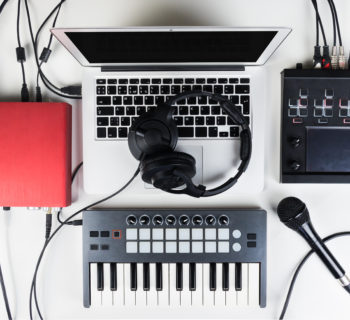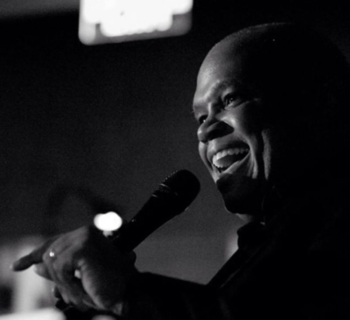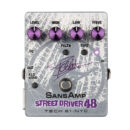For many of us, songwriting started as a passion. We’re enraptured in the joy of creating, and even the simplest of creations inspire us to try again. But somewhere along the path, the fantasy deflates. We feel that dreaded plateau, when almost nothing we write feels worthwhile, and for the first time, calling ourselves ’songwriter’ sends an uncomfortable sting like we’ve just been caught taking steroids after winning an Olympic medal.
It seems counterintuitive, but it is these plateaus that elicit the most growth. We’re more critical of our ideas than ever, and less willing to write the same songs that used to satisfy. But just changing that narrative isn’t enough. We often need a change of process.
Over two decades and hundreds of collaborative writing sessions later, I’ve noticed professional writers adopting many of the same creative habits. These 10 habits are some of the most critical routines that lead to greater productivity, stronger songs, and perhaps most importantly, more satisfying and sustainable creative lives.
1. Begin with a Strong Title
When it comes to lyrics, the concept is just the beginning. Whether we’re writing a truly original story, or pulling on the familiar heartstrings of love found or love lost, the song won’t take shape until we get specific within our song sections. Titles like “Missing You” or “Free to Choose” leave too many options, and the result is an ethereal or oblique lyric message. Instead, starting with a substantial title such as “People Get Old” or “Sidewalks of New York” narrows our choices dramatically, and makes honing in on the idea easier.
2. Sketch an Outline
Whenever you have an idea or title for a new song, immediately sketch out the general lyric idea for each section. Jot down the chorus message, as you would express it in natural, conversational language. Don’t be concerned with writing the actual lyric; simply say what you mean and mean what you say. Approach the verses similarly, following your first impressions. Don’t doubt any ideas that initially felt true to you. Sometimes the more we wade into the weeds of lyric possibility, we lose the more accessible and resonant ideas that captured us from the beginning.
3. Define the Leading Element
Think about your favorite songs and artists. What element—melody, groove, chord progression, vocal, lyric, or production—draws you to them most? What elements, when you consider closely, are not as original as you may have given them credit for? We often idolize the songs of others and criticize our own for their imperfections. Club music may not have incredible storylines, but that is not a leading element of the genre. Country music may lack interesting and dynamic verse melodies, but does not lack in storyline. Strive to identify and strengthen the leading element of your artistry or individual song, allowing other elements to ride along.
4. Write in Short Bursts
Use the first, short 20-minute burst to make decisions about lyric, melody, groove, or chords that feel right, and then commit to them. Do not spend another session doubting and attempting to rewrite ideas you’ve already committed to. Instead, time is much better spent finishing the song, and writing a new one with these additional ideas.
5. Set a Time Limit
When a section of a song is giving you trouble, set a time limit by which you will record the version that seems to work best. During the next burst, move forward and write remaining sections unless an improvement on the prior section quickly becomes clear to you. Writing until time is up, as opposed to writing until the song is done, avoids the tendency to cling to a song until it is perfect. If “perfect” songs even exist, they couldn’t exist if songwriters didn’t finish the imperfect ones.
6. Push Forward with Several Songs At Once
Pushing new songs forward as a group allows us to remain unphased while one song lags and others find their shape. When we haven’t invested the only 5-hour stretch of free time we had during the week into one idea, we’re more likely to be honest about its quality, and pivot when our doubts tell us to do so.
7. Batch the Feedback
Playing a single song for a dedicated listener leaves us open for one of two things—victory or failure. And that’s only if the listener is astute enough to verbalize what’s lacking and how to change it. Instead, play either a single section, or a verse-chorus for a listener to get their response. These smaller bits are less likely to overwhelm the listener so you can understand what element they enjoyed or struggled with. Alternatively, play a batch of songs and ask them which song stood out as their favorite and why. Many listeners have an easier time expressing why they were drawn to one song over another rather than picking apart a single song.
8. Choose Collaborations Carefully
Many songwriters don’t know what to look for in a collaborator. We often find ourselves writing with those who are convenient or available, rather than those with whom we find greater resources. Consider your leading element in your own songs. If you’re strong with melody, strive to find collaborators who can bring awesome grooves. If lyrics hold you back from finishing your songs, look for writers who aren’t intimidated by driving that element of the song.
9. Write in your Wheelhouse
When we’re drawn to a particular style or tempo, it can result in lots of songs that all sound the same. This can be disappointing to many writers, looking to explore their versatility or fit within the boundaries of a particular genre. Instead of letting the needs of a market or performance opportunity dictate the style and tempo you’ll write, aim to write what you believe you sound best writing. The moments during which your instincts seem to just “know” what is working point you to your wheelhouse.
10. Don’t Be Everything to Everyone
As writers and artists, we’re constantly comparing what we write to the best work of others. This is an important part of strengthening our songs. But comparison can often lead to the belief that our work is consistently deficient. When we can look at batches of our songs and recognize the listening audience that would most resonate with them, we are also defining the listening audiences who would not. We should fear being liked by all, indicating that our musical personality is too abstract to take on any definitive shape.
For more tips from Andrea, download her free guide, The 5 Songwriting Tools that Change Everything.
ANDREA STOLPE is a renowned multi-platinum songwriter, creative consultant and educator whose methodology for songwriters and music artists has been taught worldwide. Read more here.













